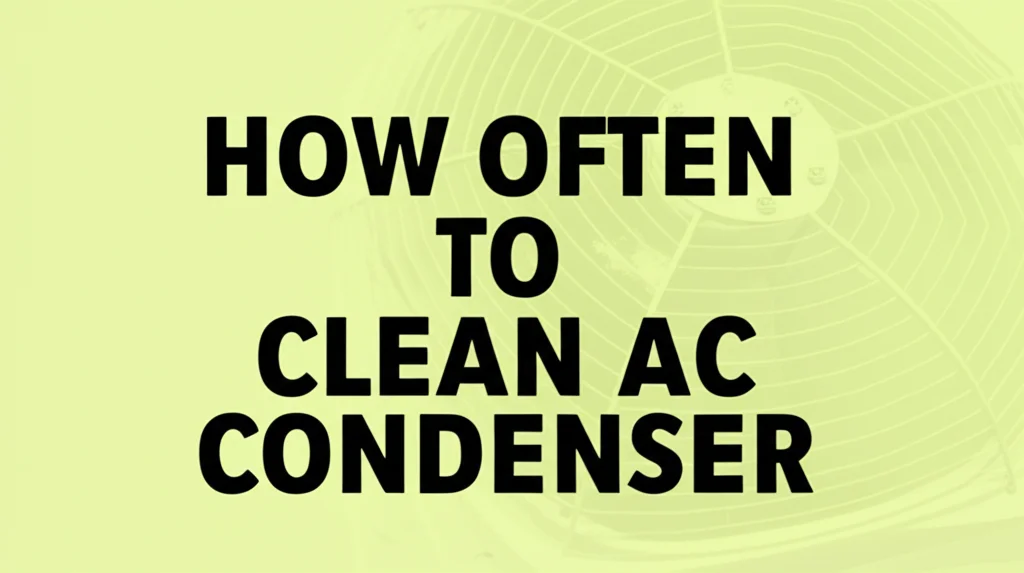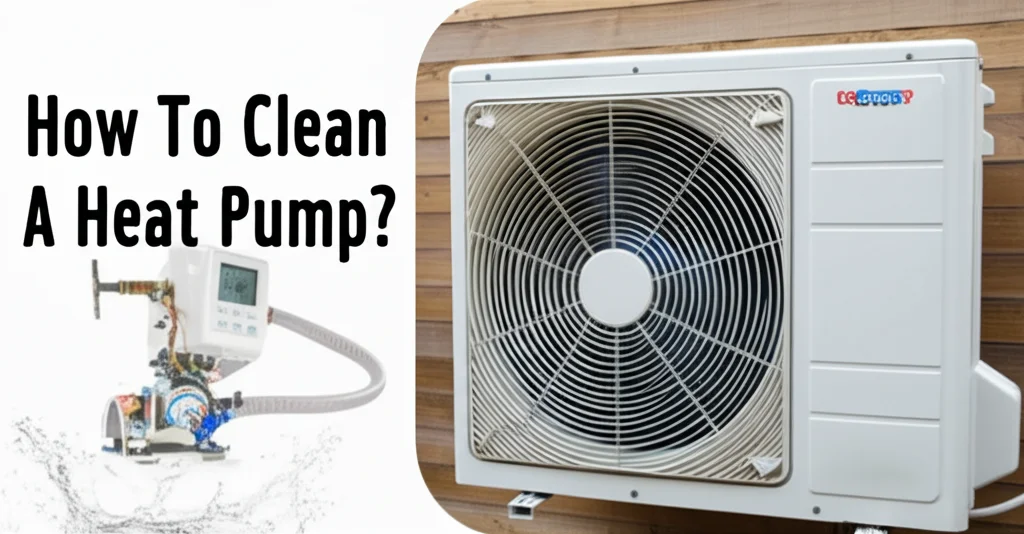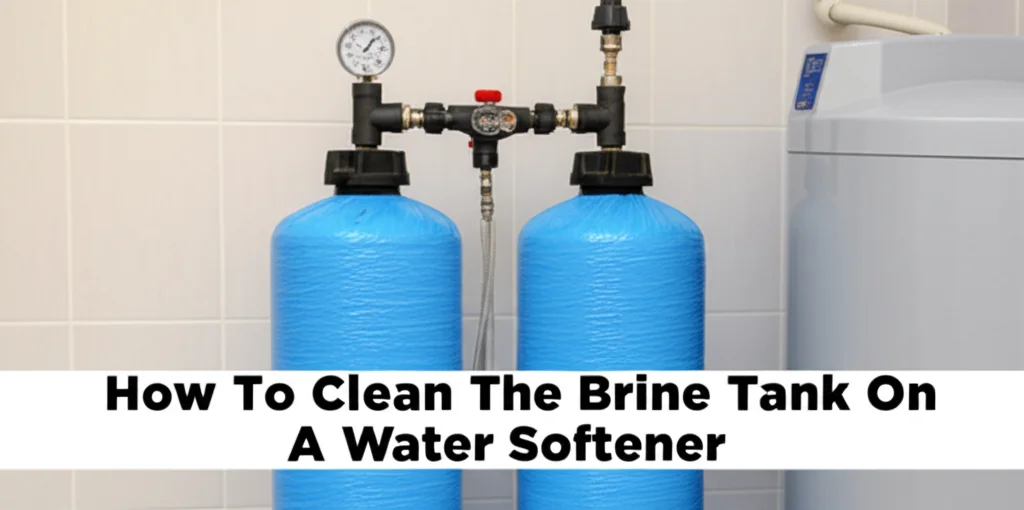· Home Maintenance · 6 min read
How Often To Clean AC Condenser

How Often Should You Clean Your AC Condenser?
Is your air conditioner struggling to keep your home cool? A dirty AC condenser could be the culprit. Many homeowners overlook this crucial part of AC maintenance, leading to reduced efficiency and higher energy bills. This article will explain how often you should clean your AC condenser, why it’s important, and how to do it effectively. We’ll cover everything from a quick monthly check to a more thorough cleaning schedule, ensuring your AC runs smoothly all season long.
Here’s a quick answer: You should visually inspect your AC condenser monthly, and perform a thorough cleaning at least once a year, ideally before the cooling season begins.
Key Takeaways:
- Regular cleaning improves AC efficiency.
- Monthly inspections help catch problems early.
- Annual deep cleaning is essential for optimal performance.
- A clean condenser extends the life of your AC unit.
Why Cleaning Your AC Condenser Matters
Your AC condenser is the outdoor unit of your air conditioning system. It’s responsible for releasing heat from your home. Over time, the condenser coils can become covered in dirt, dust, leaves, grass clippings, and other debris. This buildup restricts airflow, forcing your AC to work harder to maintain the desired temperature. A harder-working AC uses more energy, leading to higher electricity bills. Furthermore, a strained AC unit is more prone to breakdowns and may have a shorter lifespan.
The Impact of a Dirty Condenser on AC Performance
A dirty AC condenser doesn’t just affect your wallet; it impacts the overall comfort of your home. Here’s a breakdown of the consequences:
- Reduced Cooling Capacity: The unit struggles to dissipate heat, resulting in warmer temperatures inside.
- Increased Energy Consumption: The AC runs longer and harder, significantly increasing your energy bills.
- Higher Repair Costs: Overworking the unit can lead to component failure and costly repairs.
- Shorter Lifespan: Constant strain reduces the overall lifespan of your air conditioning system.
- Potential for Ice Buildup: Restricted airflow can cause the evaporator coil to freeze up, further reducing cooling efficiency.
Monthly Visual Inspections: A Quick Check
Don’t wait for a full cleaning to assess your AC condenser. A quick monthly visual inspection can help you identify potential problems early on. This proactive approach can prevent minor issues from escalating into major repairs. Here’s what to look for:
- Debris Accumulation: Check for leaves, grass clippings, branches, and other debris around the unit.
- Bent Fins: Examine the aluminum fins on the condenser coils for any bends or damage. Bent fins restrict airflow.
- Vegetation Overgrowth: Ensure shrubs and plants are trimmed back to allow at least two feet of clearance around the unit.
- Signs of Corrosion: Look for rust or corrosion on the unit’s exterior.
Annual Deep Cleaning: A Step-by-Step Guide
An annual deep cleaning is crucial for maintaining optimal AC performance. Here’s how to do it:
- Turn Off the Power: Before you begin, always turn off the power to the AC unit at the breaker box. Safety first!
- Remove Debris: Clear away any leaves, twigs, or other debris from around the unit.
- Clean the Fins: Use a fin comb to straighten any bent fins. This restores proper airflow.
- Gentle Washing: Use a garden hose with a gentle spray nozzle to wash the condenser coils from the inside out. Avoid using high pressure, as this can damage the fins. You can also use a coil cleaner specifically designed for AC units – follow the product instructions carefully. If you’re looking for ways to keep your floors clean while doing this, consider checking out https://www.beacleaner.com/how-to-clean-vinyl-plank-flooring/ for tips on protecting your surfaces.
- Remove Internal Debris: Carefully remove the top grille and vacuum out any accumulated debris inside the unit.
- Reassemble and Restore Power: Once everything is clean and dry, reassemble the unit and turn the power back on.
Factors Influencing Cleaning Frequency
The ideal cleaning frequency depends on several factors:
- Location: If you live in a dusty or pollen-rich environment, you’ll need to clean your condenser more often.
- Landscaping: Homes with lots of trees or shrubs nearby will require more frequent cleaning due to falling leaves and debris.
- Pet Ownership: Pet hair and dander can contribute to condenser coil buildup.
- Air Filter Maintenance: Regularly changing your air filter helps prevent dust and debris from reaching the condenser. A clogged air filter forces the AC to work harder, increasing the likelihood of condenser coil buildup.
- Usage: If you run your AC frequently, you’ll need to clean the condenser more often than someone who only uses it occasionally.
When to Call a Professional
While you can handle basic AC condenser cleaning yourself, there are times when it’s best to call a professional HVAC technician. Consider professional cleaning if:
- You’re uncomfortable working with electrical components.
- The condenser coils are heavily soiled or corroded.
- You suspect a more serious problem with your AC unit.
- You lack the necessary tools or expertise.
- You notice refrigerant leaks.
A professional can perform a thorough cleaning and inspection, ensuring your AC is running safely and efficiently. They can also identify and address any underlying issues that may be affecting performance. If you’re dealing with other cleaning issues around the house, like stubborn grout, you might find https://www.beacleaner.com/how-to-clean-floor-grout-without-scrubbing/ helpful.
FAQ About AC Condenser Cleaning
Q: Can I use a pressure washer to clean my AC condenser?
A: No, using a pressure washer can damage the delicate fins on the condenser coils. Stick to a garden hose with a gentle spray nozzle.
Q: How often should I change my AC air filter?
A: Generally, you should change your AC air filter every 1-3 months, depending on usage and air quality.
Q: What does a fin comb do?
A: A fin comb is a tool used to straighten bent fins on the condenser coils, restoring proper airflow.
Q: Is it safe to clean the AC condenser myself?
A: Yes, but always turn off the power to the unit at the breaker box before you begin.
Q: What if I notice mold growing on the AC condenser?
A: Mold indicates a moisture problem. Turn off the unit and contact a professional HVAC technician for inspection and cleaning. You might also want to check out https://www.beacleaner.com/how-to-remove-mold-from-painted-walls/ for general mold removal tips.
Q: Can cleaning the condenser improve my home’s air quality?
A: Yes, a clean condenser helps your AC run more efficiently, which can improve air circulation and reduce dust and allergens in your home.
Conclusion
Cleaning your AC condenser is a simple yet effective way to improve its performance, lower your energy bills, and extend its lifespan. Remember to perform monthly visual inspections and a thorough annual cleaning. By following these tips, you can keep your AC running smoothly and efficiently for years to come. Don’t underestimate the power of a clean condenser – it’s a small investment that can yield significant returns. If you’re looking for other ways to maintain a clean and comfortable home, consider exploring resources on floor care, like https://www.beacleaner.com/how-to-clean-hardwood-floors-with-vinegar/. A well-maintained AC system and a clean home go hand in hand!




